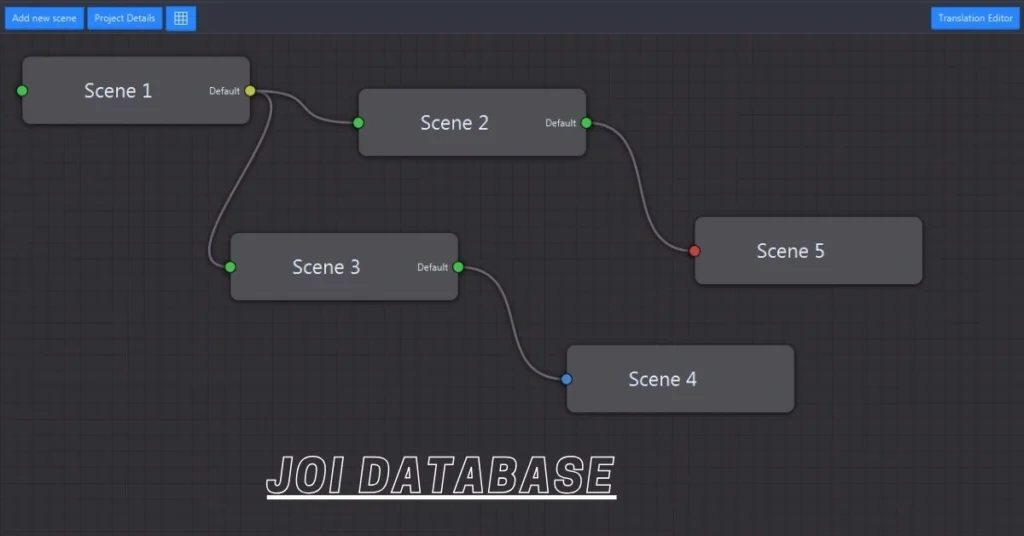Introduction
The Joi database is a key player in the modern data management landscape, known for its versatility and robust features. It provides a comprehensive solution for handling a wide range of data types and use cases, making it a popular choice among developers and data scientists alike. This article delves into the various aspects of the Joi database, including its features, architecture, use cases, and more.
Overview of Joi Database
Joi is a database management system designed to cater to the needs of contemporary data-driven applications. It stands out due to its scalability, flexibility, and ease of integration with various programming environments. Joi’s architecture supports both relational and non-relational data models, making it a hybrid solution that can adapt to different data structures.
Key Features of Joi Database
Scalability and Performance
One of the primary features of the Joi database is its scalability. It is designed to handle large volumes of data efficiently, ensuring that performance remains consistent even as the database grows. This scalability is achieved through advanced indexing techniques and optimized query processing.
Flexibility in Data Modeling
Joi offers flexibility in data modeling, allowing users to define and adjust schemas according to their needs. This feature is particularly useful for applications that require dynamic data structures or frequent schema changes.
Integration Capabilities
Joi integrates seamlessly with a variety of programming languages and frameworks. Its support for RESTful APIs and other integration tools makes it easy to connect with existing systems and applications, facilitating smoother data workflows.
Architecture of Joi Database
Database Engine
The core of the Joi database is its engine, which manages data storage, retrieval, and manipulation. The engine is designed to be modular, allowing for easy updates and enhancements. It supports various storage engines, including traditional disk-based storage and in-memory options for high-speed access.
Query Processing
Joi’s query processing system is designed to handle complex queries efficiently. It uses a combination of indexing, caching, and optimization techniques to ensure fast query response times. The query language is intuitive, making it accessible for both novice and experienced users.
Security Features
Security is a critical aspect of the Joi database. It includes features such as data encryption, access controls, and audit logs to ensure data integrity and confidentiality. These features help protect sensitive information and comply with various regulatory requirements.
Use Cases for Joi Database
E-Commerce Applications
In e-commerce applications, Joi’s flexibility and scalability make it an ideal choice. It can handle large volumes of product data, customer information, and transaction records efficiently. Its ability to support complex queries also aids in generating detailed reports and analytics.
Content Management Systems
Joi is well-suited for content management systems (CMS) that require dynamic data handling. Its flexible schema design allows for easy management of diverse content types, including text, images, and multimedia. The database’s integration capabilities also facilitate seamless content delivery across different platforms.
Data Warehousing
For data warehousing applications, Joi’s scalability and performance are crucial. It can handle large datasets and perform complex analytical queries efficiently. The database’s support for various data models allows for effective aggregation and reporting of large-scale data.
Comparison with Other Databases
Joi vs. Relational Databases
Unlike traditional relational databases, Joi supports both relational and non-relational data models. This hybrid approach provides greater flexibility in data handling. While relational databases are excellent for structured data with fixed schemas, Joi’s adaptability makes it suitable for applications with evolving data structures.
Joi vs. NoSQL Databases
Joi’s hybrid nature also allows it to compete with NoSQL databases, which are known for their scalability and flexibility. While NoSQL databases excel in handling unstructured data and horizontal scaling, Joi combines the best of both worlds by offering a flexible schema and efficient query processing.
Advantages of Using Joi Database
Efficient Data Management
Joi’s efficient data management capabilities ensure that users can handle large volumes of data without performance degradation. Its advanced indexing and query optimization techniques contribute to fast data retrieval and manipulation.
Versatile Data Handling
The database’s support for various data models makes it versatile and adaptable to different use cases. Whether dealing with structured or unstructured data, Joi provides the tools needed for effective data management.
Robust Integration
Joi’s robust integration capabilities make it easy to connect with other systems and applications. This facilitates seamless data exchange and integration, enhancing overall workflow efficiency.
Challenges and Considerations
Learning Curve
While Joi offers many advanced features, there may be a learning curve for users who are new to its system. Understanding its architecture, query language, and integration options requires some time and effort.
Resource Requirements
The performance and scalability of Joi depend on the resources allocated to it. Ensuring that the database has adequate hardware and network resources is essential for maintaining optimal performance.
Future Developments
As technology evolves, Joi continues to adapt and enhance its features. Future developments may include improved AI and machine learning capabilities, enhanced security measures, and even more flexible data modeling options. Staying updated with these developments will be crucial for users to leverage the full potential of the database.
Conclusion
The Joi database is a powerful and versatile tool for modern data management. Its hybrid architecture, combined with features like scalability, flexibility, and robust integration, makes it a valuable asset for various applications. By understanding its capabilities and staying informed about future developments, users can maximize the benefits of the Joi database for their data-driven needs.
Read More: Alexandra Jarvis: Biography, Career, and Personal Life







